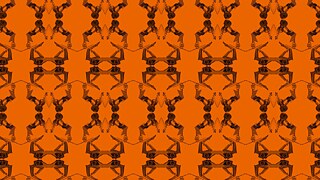Emily Cross
Professor Emily S. Cross holds positions as Professor of Human Neuroscience at Macquarie University in Australia and Professor of Social Robotics at the University of Glasgow in Scotland. In her research, she uses brain imaging techniques, robots, performing arts and artists and action training paradigms to explore how experience-dependent plasticity, action expertise and aesthetic preferences are manifest across brain and behaviour.
Website Twitter
My favourite AI in culture project at the moment is… any type of performance that pairs humans and robots, including the dance duet between Huang Yi and KUKA, the interactive and wildly innovative installation ‘Babyface’ where the robotic wings worn by a dancer on stage are controlled, in part, by the audience’s breath, and of course, Heather Knight’s expressive robotic theatre and dance work. I’m also extremely excited to experience Dr. Petra Gemeinboeck’s work with UNSW’s National Institute for Experimental Arts with choreographed robots.
By 2030 I would like to have an AI app which… can tell me everything about my current physiological state, such as how well hydrated I am, cortisol levels (as a measure of stress), how many more calories I need to consume across the day to maintain fitness (and perhaps making suggestions about foods to eat to maintain optimal levels of iron, calcium, and all other vitamins/minerals), sleep quality/quantity and any other health insights that could be useful!
My worst AI nightmare is… if all customer service interfaces were to be replaced by AI. Many companies are clearly already quite far down this path but I think in order for people and AI to peacefully and meaningfully co-exist, we have to realise and celebrate what the human brain is brilliant at (which is understanding nuance and emotion and generating creative solutions) and what is best outsourced to machine intelligence.
The future of AI needs… far more diverse voices, backgrounds and perspectives at all stages of development, testing and deployment. This will ensure we are building technology that truly suits and supports people of all stripes.
Emily Cross' contribution: "Culture shock in the robot age"
Website Twitter
My favourite AI in culture project at the moment is… any type of performance that pairs humans and robots, including the dance duet between Huang Yi and KUKA, the interactive and wildly innovative installation ‘Babyface’ where the robotic wings worn by a dancer on stage are controlled, in part, by the audience’s breath, and of course, Heather Knight’s expressive robotic theatre and dance work. I’m also extremely excited to experience Dr. Petra Gemeinboeck’s work with UNSW’s National Institute for Experimental Arts with choreographed robots.
By 2030 I would like to have an AI app which… can tell me everything about my current physiological state, such as how well hydrated I am, cortisol levels (as a measure of stress), how many more calories I need to consume across the day to maintain fitness (and perhaps making suggestions about foods to eat to maintain optimal levels of iron, calcium, and all other vitamins/minerals), sleep quality/quantity and any other health insights that could be useful!
My worst AI nightmare is… if all customer service interfaces were to be replaced by AI. Many companies are clearly already quite far down this path but I think in order for people and AI to peacefully and meaningfully co-exist, we have to realise and celebrate what the human brain is brilliant at (which is understanding nuance and emotion and generating creative solutions) and what is best outsourced to machine intelligence.
The future of AI needs… far more diverse voices, backgrounds and perspectives at all stages of development, testing and deployment. This will ensure we are building technology that truly suits and supports people of all stripes.
Emily Cross' contribution: "Culture shock in the robot age"

